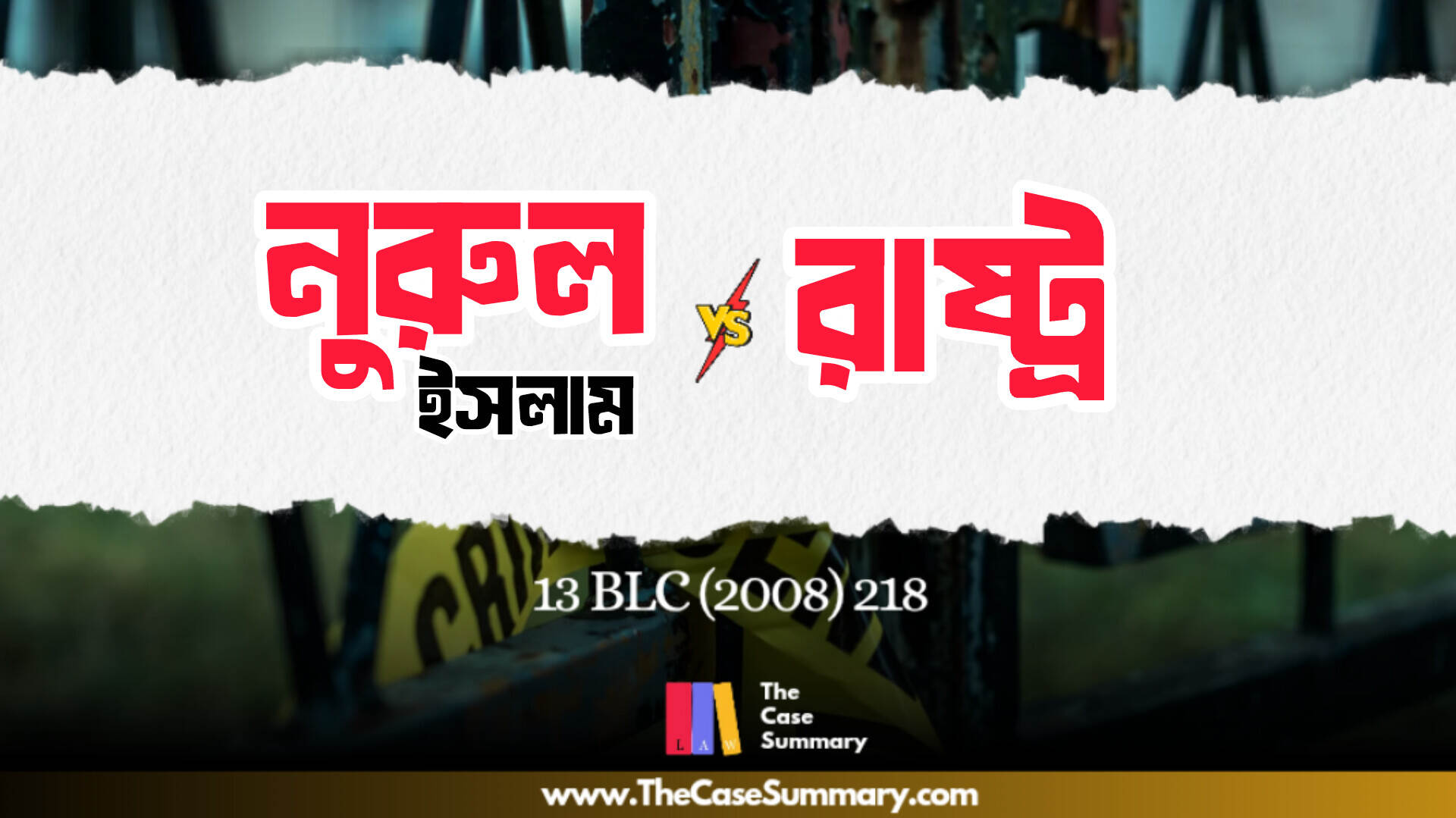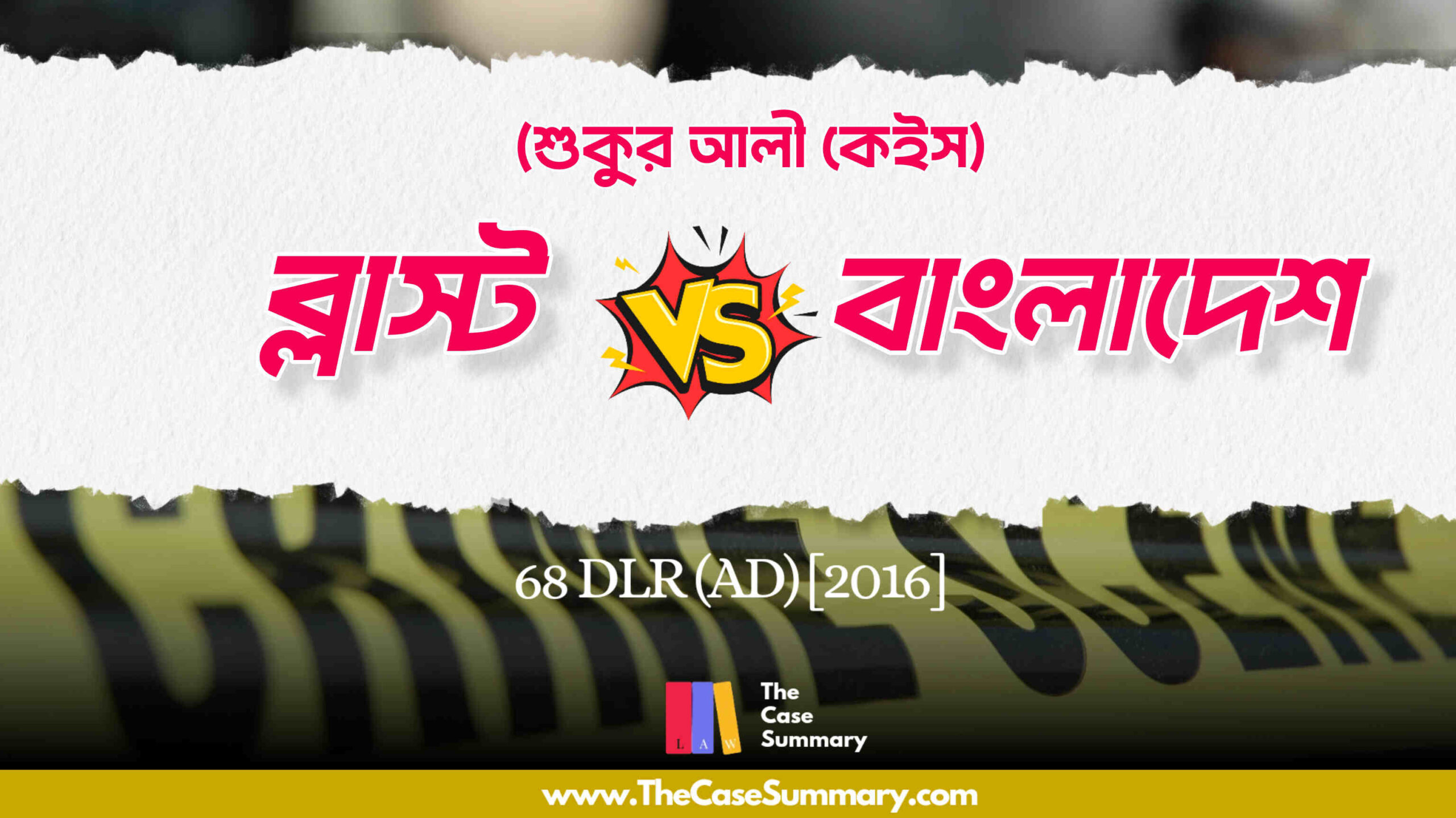Hussain Mohammad Ershad vs The State and Others
Citation : 53 DLR (2001) 102
Jurisdiction : Bangladesh
Appellant : Hussain Mohammad Ershad (Defendant in the court of first instance)
Respondent : The State and Others (Plaintiff in the court of first instance)
Facts :
In the late 1980s, some of Dhaka’s most valuable plots in Kawran Bazar became the center of a tangled controversy. H.M. Ershad, then President of Bangladesh, was accused of misusing his position to secure these plots for his wife, Rowshan Ershad, who concealed her identity and Dhaka address. A group of others, including officials and private individuals, allegedly exploited loopholes by buying small pieces of land from original owners or their heirs, giving the appearance of legitimate claims. The Chairman of RAJUK, M.M. Rahmatullah, reportedly rushed approvals and transfers, ignoring rules and reports. Soon after, Janata Publishing Limited, linked to some of the accused, began constructing the multi-storied Janata Tower, funding it with unusually large cash payments. These actions collectively caused RAJUK a loss exceeding five crore taka and set the stage for one of the country’s most prominent corruption trials.
Issues :
1. Whether H.M. Ershad, M.M. Rahmatullah, and others used their positions of power to unfairly gain land and financial benefits for themselves and their associates.
2. Whether the prosecution convincingly proved that the money spent on constructing Janata Tower far exceeded the known income of the accused.
3. Whether the prison sentences handed down were fair and just, considering the severity of the offences and the significant loss caused to RAJUK.
Arguments :
Appellant’s Arguments:
The appellants maintained that many of them had been unfairly drawn into the case despite having little or no direct involvement in the alleged corruption. They claimed that their inclusion was influenced by political motives or mere association. They questioned the sufficiency of the respondent’s evidence, arguing it could not prove guilt beyond reasonable doubt. The appellants also argued that imposing the same seven-year sentence on everyone was unjust, particularly for minor participants compared to senior officials like H.M. Ershad. They emphasized that private individuals could not be judged by the same strict standards as public officials and that the unique role of each accused had not been properly considered, which undermined fairness and justice.
Respondent’s Arguments:
The respondent stressed the importance of combating corruption at the highest levels, noting that public misconduct erodes trust in government institutions. They presented evidence showing that H.M. Ershad orchestrated the land allotment scheme and that the other accused knowingly facilitated it, causing significant financial loss to RAJUK. The respondent argued that the sentences were necessary not only to punish the guilty but also to deter future wrongdoing while maintaining fairness and protecting society. They emphasized that all accused, whether directly or indirectly involved, bore responsibility for the offence, and holding them accountable was essential to uphold justice and public confidence.
Decisions :
The Court upheld the convictions of all appellants, confirming abuse of power, conspiracy, and financial loss to RAJUK. It emphasized that punishment must be fair, not too lenient to trivialize corruption, nor too harsh to provoke resentment. Key Decisions:
- H.M. Ershad: Sentence reduced to five years’ imprisonment with a fine of Tk. 5,48,70,800.00, or two additional years if unpaid.
- Other Appellants: Seven-year sentences reduced to Tk. 10,000 fines each, or two years’ imprisonment in default.
- Confiscation: Plot Nos. 49, 49A, 49B, and 49C, including Janata Tower, remained state property.
The Court balanced accountability with proportional justice, tailoring punishment to each appellant’s role and the offence’s severity.
Relevant Laws :
- The Penal Code, 1860
- Section : 71, 72
- The Code of Criminal Procedure, 1898
- Section : 423(1)(b)
- The Constitution of People’s Republic of Bangladesh
- Article : 42, 55(3)
Author :
1. Fuad Hasan
Note : The Case Summary is a platform by the law students, for the law students. We aim to summarize the facts and decisions of various important cases in both Bangla and English with utmost caution. However, this platform is in no way a replacement for going through the complete judgements by the law students and we discourage any learner from relying on case summaries alone. Thank you



